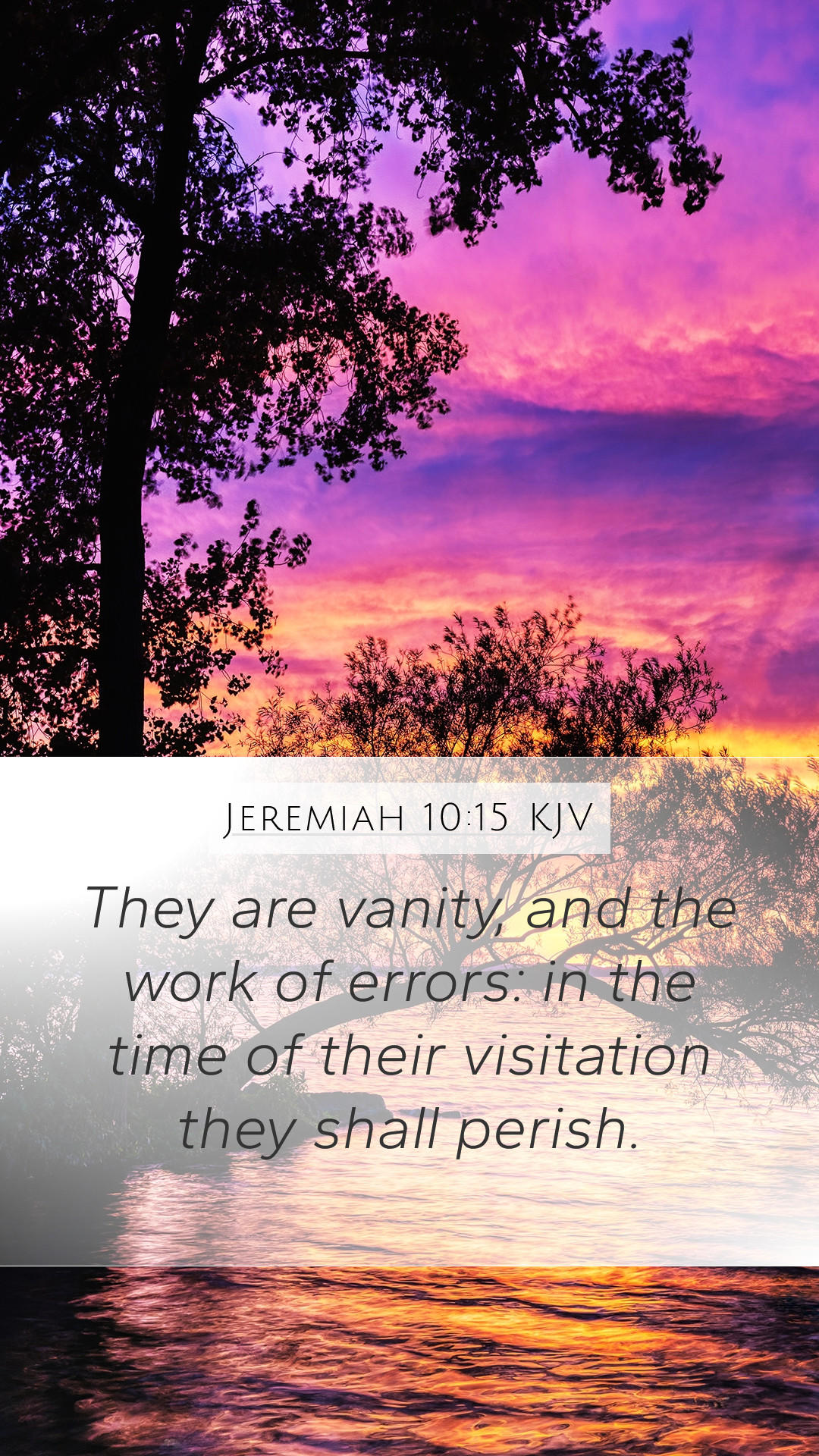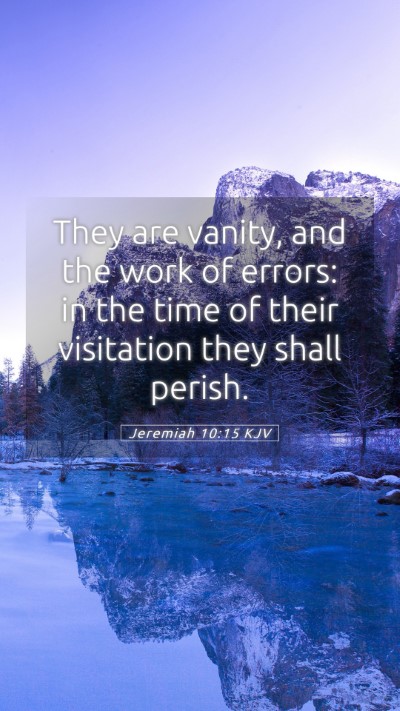Understanding Jeremiah 10:15: Meaning and Commentary
Jeremiah 10:15 states, "They are vanity, and the work of errors: in the time of their visitation they shall perish."
This verse serves as a potent reminder of the futility of idol worship and the empty nature of false gods. In this commentary, we will explore the various aspects of this verse as interpreted by renowned public domain scholars, providing a comprehensive understanding suited for Bible study groups, online Bible study resources, and individual study endeavors.
Verse Context
To fully grasp the meaning of Jeremiah 10:15, it is essential to examine its context within the Book of Jeremiah and the broader scriptural narrative. As a prophet, Jeremiah conveyed God’s displeasure toward the idolatry that was prevalent among the Israelites. This particular verse underscores the consequences that await those who forsake the one true God in favor of crafted images and worldly distractions.
Summary of Insights from Public Domain Commentaries
-
Matthew Henry's Commentary:
Henry highlights that the "vanity" referred to here signifies the worthlessness of idols. His analysis suggests that these idols are devoid of substance and life. This verse assures believers that God will act in due time, indicating that the idols, though seemingly powerful, will ultimately face destruction during Divine judgment.
-
Albert Barnes' Notes:
Barnes elaborates on the term "work of errors," indicating that these idols are products of human folly and misplaced trust. He remarks that the time of their visitation implies a period of accountability, suggesting that the judgment will come, and those who worship such idols will face dire consequences. This interpretation encourages readers to reflect on the need for authentic worship and allegiance to God alone.
-
Adam Clarke's Commentary:
Clarke draws attention to the transient nature of idols, emphasizing that they possess no power to save or deliver. He interprets “shall perish” as a certainty in the prophetic declaration of God’s ultimate judgment, which reinforces the necessity for worship that aligns with true faith in God. Clarke's notes reflect a clear distinction between the living God and lifeless idols.
Thematic Elements
This verse encapsulates several significant themes that are pivotal to understanding Scripture:
- The Futility of Idolatry: The verse serves as a stark denunciation of idol worship, reminding believers of the emptiness of such practices.
- Divine Judgment: There is a prophetic assurance that the judgment of false idols will come; this creates a sense of urgency for true worship.
- Hope in God's Sovereignty: Despite the presence of evil and idolatry, this verse also reinforces the hope and confidence that God has the final say.
Application to Daily Life
For contemporary believers, Jeremiah 10:15 challenges us to evaluate what constitutes our idols today. Whether they be material possessions, status, or anything that takes the place of God in our lives, this verse serves to remind us of their ultimate inability to provide salvation or fulfillment.
Cross References
To further enhance our understanding of Jeremiah 10:15, consider the following cross-references:
- Isaiah 44:9-20 - Discusses the foolishness of idol-making.
- Psalms 115:4-8 - Similar condemnation of idols and their inability to act.
- 1 Corinthians 8:4-6 - Affirms that there is no other god but one.
Conclusion
In summary, Jeremiah 10:15 serves as a powerful reminder of the futility of placing trust in anything other than the one true God. Through insights from noted commentaries, we gain a deeper understanding of the implications of idolatry and the Divine judgment that awaits such practices. This exploration not only enriches our Bible study insights but also encourages a closer relationship with God, fostering breakthroughs in our spiritual journeys.


